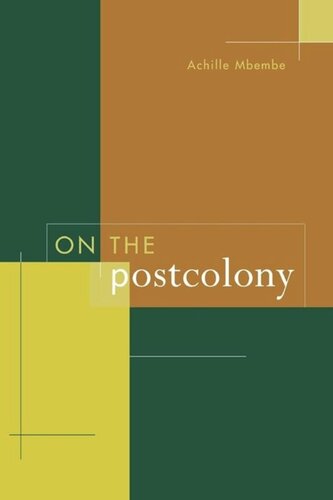

Most ebook files are in PDF format, so you can easily read them using various software such as Foxit Reader or directly on the Google Chrome browser.
Some ebook files are released by publishers in other formats such as .awz, .mobi, .epub, .fb2, etc. You may need to install specific software to read these formats on mobile/PC, such as Calibre.
Please read the tutorial at this link: https://ebookbell.com/faq
We offer FREE conversion to the popular formats you request; however, this may take some time. Therefore, right after payment, please email us, and we will try to provide the service as quickly as possible.
For some exceptional file formats or broken links (if any), please refrain from opening any disputes. Instead, email us first, and we will try to assist within a maximum of 6 hours.
EbookBell Team

5.0
90 reviewsAchille Mbembe is one of the most brilliant theorists of postcolonial studies writing today. In On the Postcolony he profoundly renews our understanding of power and subjectivity in Africa. In a series of provocative essays, Mbembe contests diehard Africanist and nativist perspectives as well as some of the key assumptions of postcolonial theory.
This thought-provoking and groundbreaking collection of essays—his first book to be published in English—develops and extends debates first ignited by his well-known 1992 article "Provisional Notes on the Postcolony," in which he developed his notion of the "banality of power" in contemporary Africa. Mbembe reinterprets the meanings of death, utopia, and the divine libido as part of the new theoretical perspectives he offers on the constitution of power. He works with the complex registers of bodily subjectivity — violence, wonder, and laughter — to profoundly contest categories of oppression and resistance, autonomy and subjection, and state and civil society that marked the social theory of the late twentieth century.
This provocative book will surely attract attention with its signal contribution to the rich interdisciplinary arena of scholarship on colonial and postcolonial discourse, history, anthropology, philosophy, political science, psychoanalysis, and literary criticism.